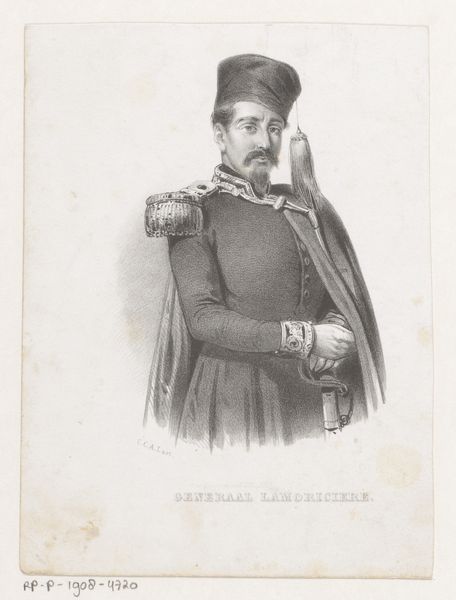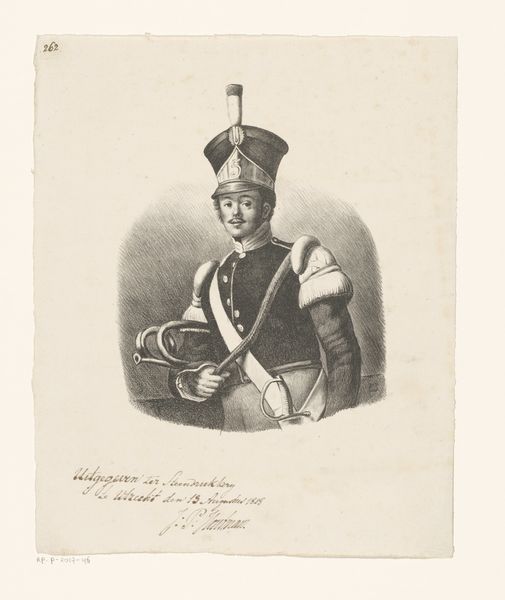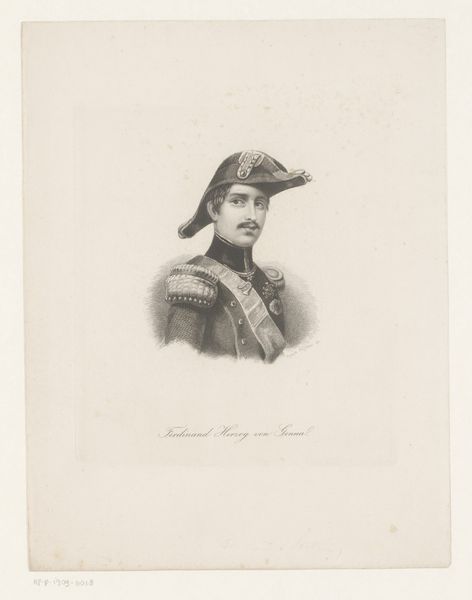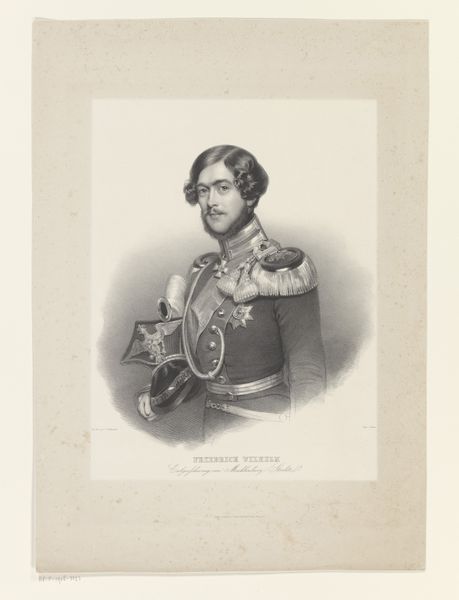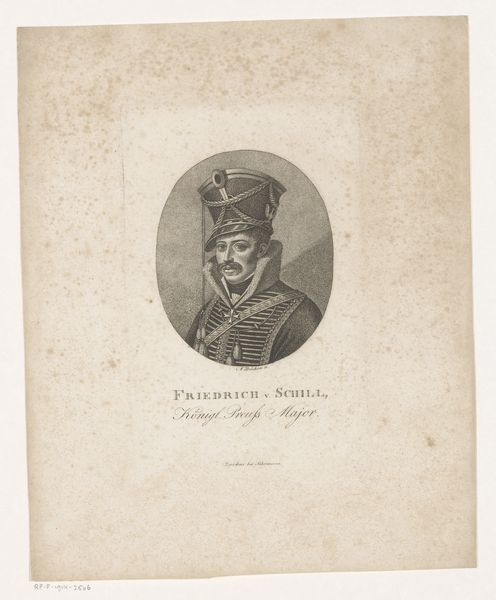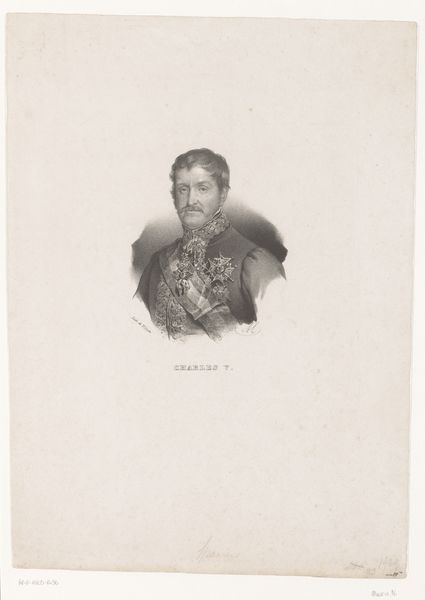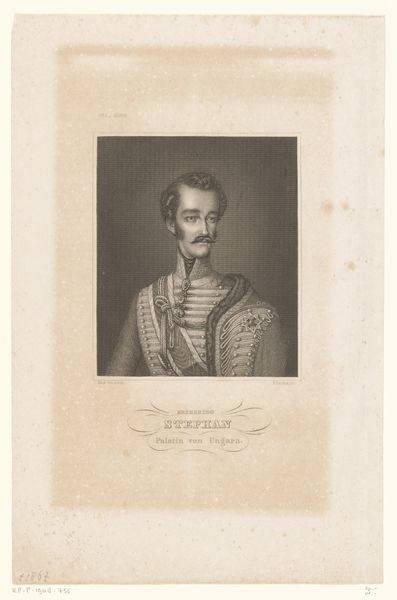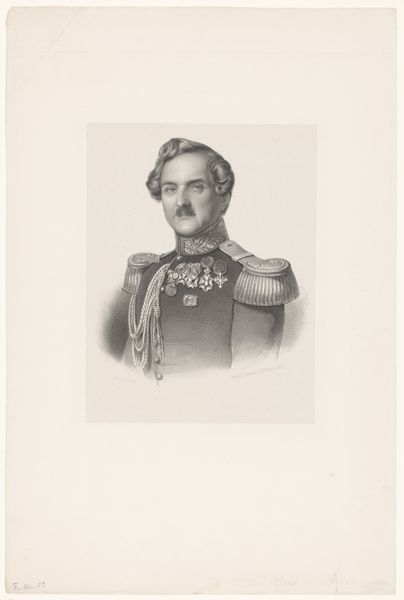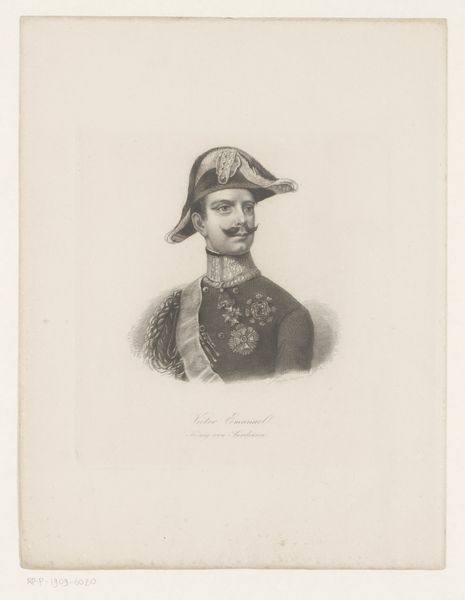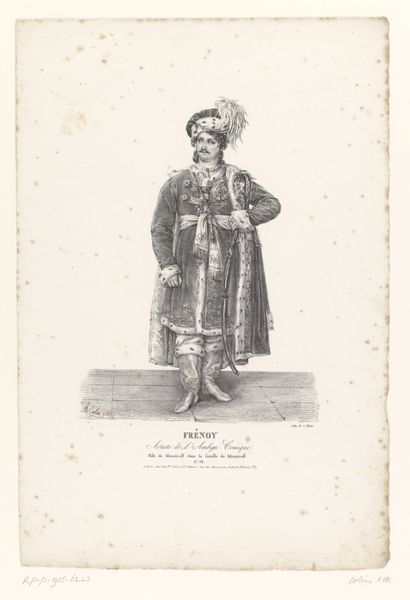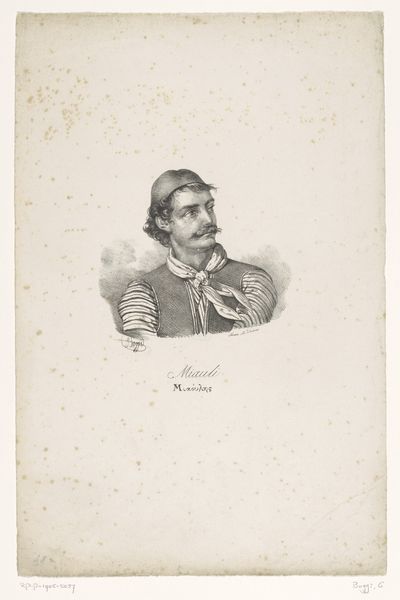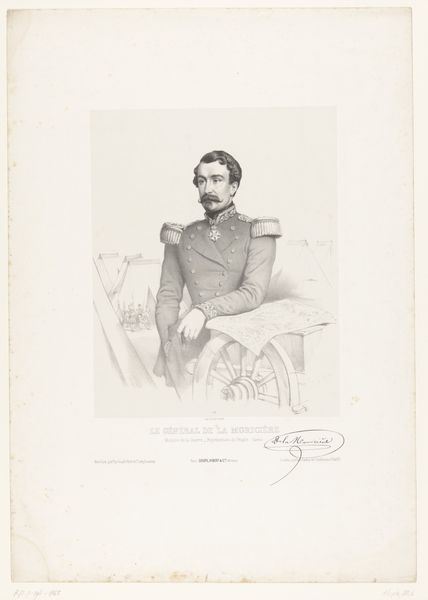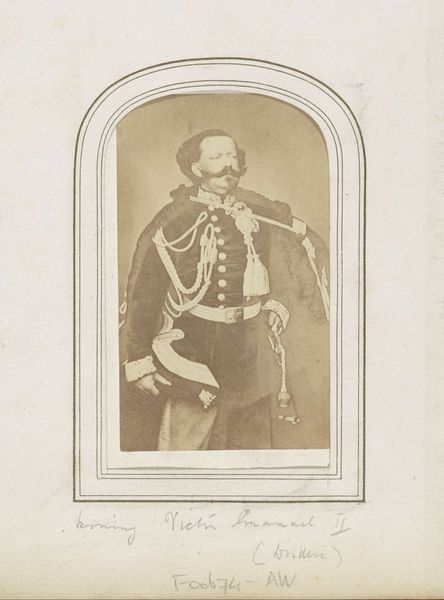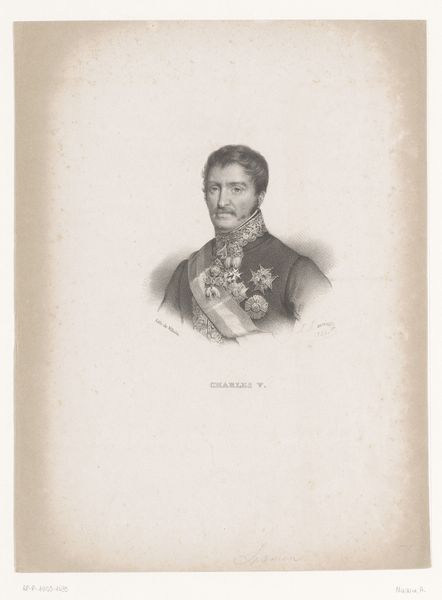
drawing, pencil
#
portrait
#
pencil drawn
#
drawing
#
16_19th-century
#
pencil sketch
#
historical photography
#
pencil drawing
#
pencil
#
19th century
#
history-painting
#
academic-art
#
realism
Dimensions: height 232 mm, width 140 mm
Copyright: Rijks Museum: Open Domain
Curator: Here we have a portrait of Eduard Totleben. Created between 1846 and 1876 by Carel Christiaan Antony Last, it is now held at the Rijksmuseum. Editor: The overall tone is surprisingly gentle, even with the presence of the cannon. There's a soft, almost melancholic air about this man despite his military dress. Curator: I think the softness comes from the medium itself. It’s a pencil drawing, not a photograph or a painting. Pencil carries its own inherent sensitivity and also allows a focus on very fine detail. Consider the intricate details of his epaulettes or the carefully rendered folds of his cloak. These elements emphasize not just his status but his individual identity. Editor: Yes, I see that too. The softness almost undermines the military symbols. Look at how casually he rests his hand on that cannon – it seems almost like a prop, stripping away the glorification of war we might expect. Perhaps this challenges our preconceived notions about military might and masculinity, inviting us to question the cost of conflict? Curator: Or perhaps, instead, it invites us to appreciate the figure as an intellectual or as a scholar and simultaneously the military accoutrements add to his appeal by way of status. Notice that it seems like a deliberate choice on the artist’s part to soften what may have been considered harsh characteristics, using the canon and uniform to communicate status and authority. He is shown as both strategist and person of stature, appealing to different viewers. Editor: That reading brings the conversation squarely into the social hierarchy, the power dynamics that framed this figure. It begs the question: whom was this portrait designed to impress, and what ideas was it meant to propagate? Curator: Those are all good points and demonstrate how much a "simple" drawing can unpack about its subject and its historical period. Editor: Exactly. It's a reminder that every image is a loaded document waiting to be critically engaged with.
Comments
No comments
Be the first to comment and join the conversation on the ultimate creative platform.
